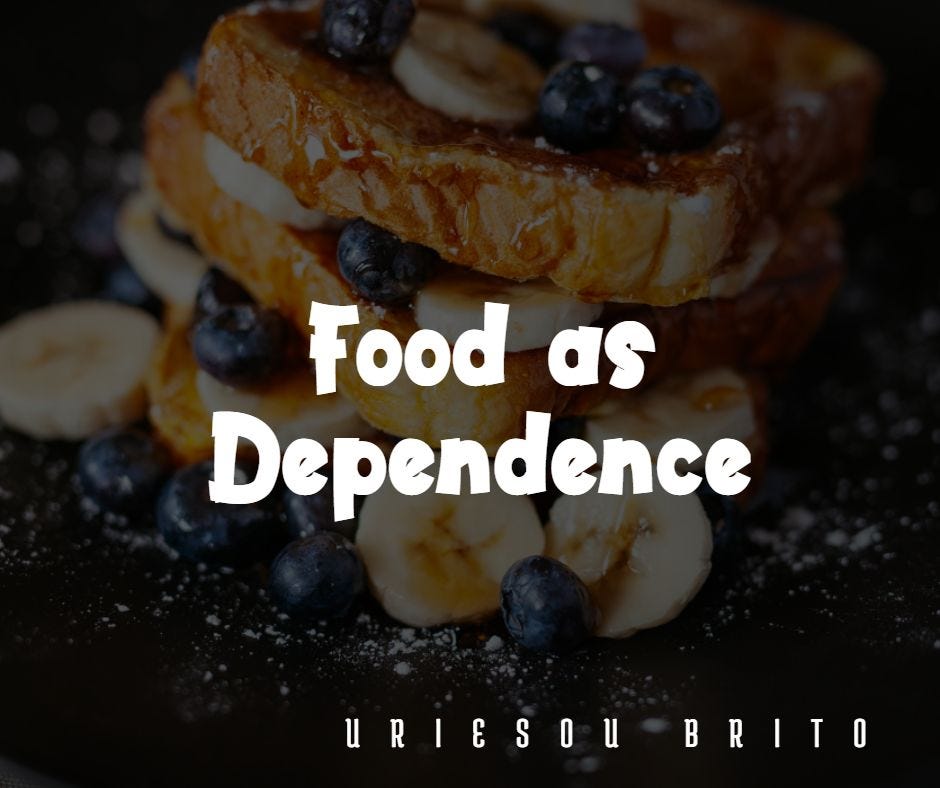Food as Dependence

Food means we are dependent creatures. It symbolizes our need to be satiated by something outside ourselves. The food we eat is dead, and only God can cause it to become alive to/in us. We depend on a God who takes dead things and brings them back to life. God can take dead animals and vegetation and use our bodies to consume these things and bring us a burst of energy and health from them.
Yahweh took animals in the Old Covenant, called priests to kill them, lay them on the altar, and make them into ascension offerings so that God would smell them and be pleased. And then, later, God would kill his own Son, offer him up as an ascension offering, and call it “very good.” Jesus’ sacrifice was pleasing to the Father. The Son’s body was a delicious offering of praise to the Father and the world.
Even throughout our Lord’s ministry, he was fully dependent on his Father. During the Last Supper, he takes up the bread and gives thanks. We, too, are eucharistic creatures called to a life of dependence, feasting on good things and celebrating the giver of all good gifts.
When we eat, our appetites are directed towards our utter dependence on God’s supernatural ability to make dead things alive. Our tastes are not independent of the giver. We eat because we treasure the giver of all good things. As Paul says, “God has given us everything richly to enjoy.”
When we eat, we tell the world that we cannot function outside our need of God. The unbeliever eats as if food is a human right, like it’s owed to him. On the other hand, the believer eats with thanksgiving, knowing that all gifts come from God–the salad and the steak, salmon, and sweet potatoes. Food means we are dependent creatures looking to the One from whom all blessings and tastes flow.
The post Food as Dependence appeared first on Kuyperian Commentary.

